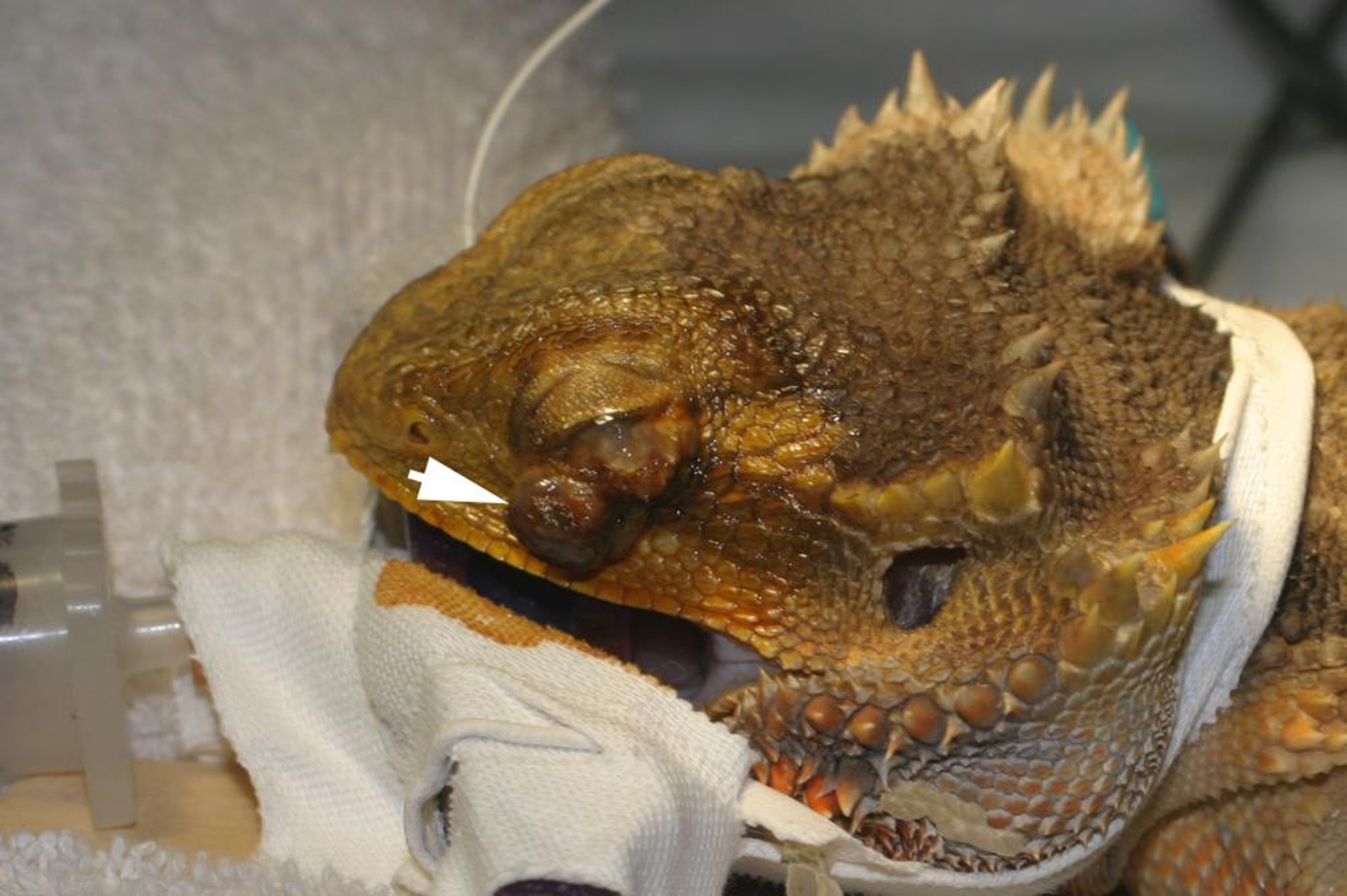Courtesy of Dr. Stephen Divers.
Courtesy of Dr. Stephen Divers.
Neoplasia is becoming increasingly common as captive reptile populations age, and it should always be included in the differential diagnosis of disease in an adult reptile. In addition to spontaneously developing neoplastic diseases, tumors have been associated with parasitism and oncogenic viruses. Surgical or endoscopic biopsies are preferred for diagnosis. Techniques such as radiography, CT, MRI, ultrasonography, endoscopy, cytology, histopathology (biopsy), and viral isolation provide improved diagnostic capabilities and assist with staging the disease. Once neoplasia is diagnosed, treatment protocols similar to those used in other animals should be considered.
For More Information
Divers SJ and Stahl SJ (2019), Reptile and Amphibian Medicine and Surgery, Elsevier Publishing.
